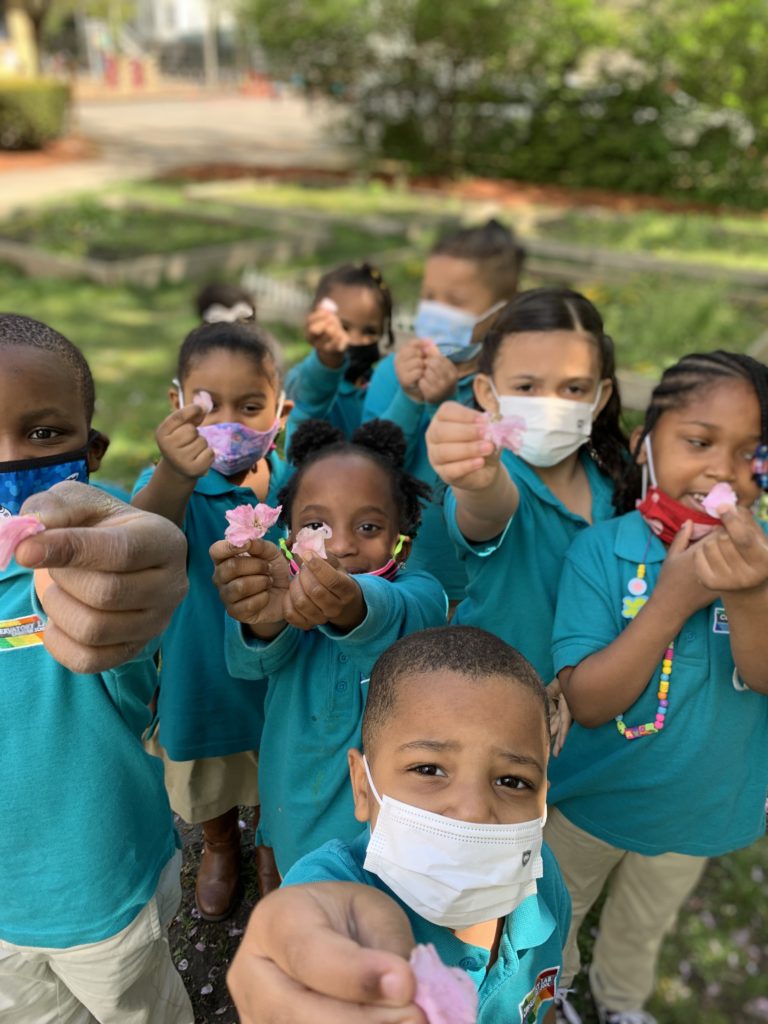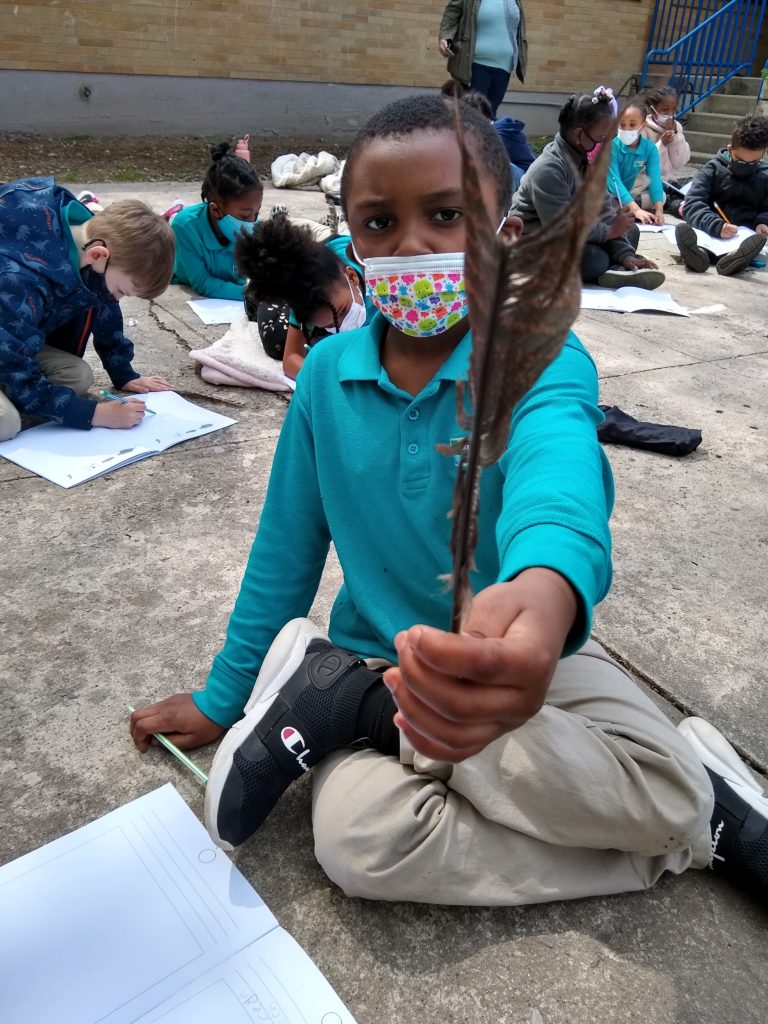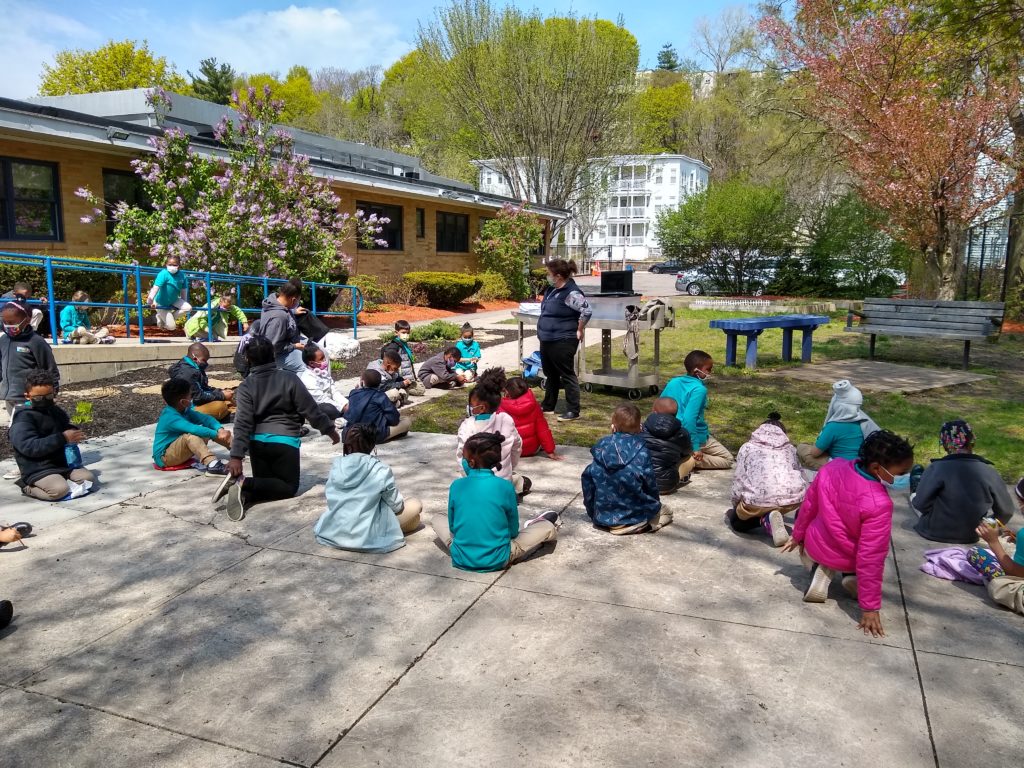EL Education is a comprehensive school reform model that partners with hundreds of schools across the nation to provide exemplary professional development and curriculum resources that enhance engagement, elevate achievement, and build character. At Conservatory Lab, EL Education invigorates instructional practices by supporting a standards-based curriculum that is both rigorous and joyful, and an inquiry-based pedagogy that puts students at the center of their own learning. The EL motto “We are crew, not passengers” emphasizes a participatory culture that fosters cooperation, empathy, and responsibility.

Learning Expeditions
Interdisciplinary studies called learning expeditions are the hallmark of an EL Education school. Throughout their time at Conservatory Lab, students engage in a progression of interdisciplinary learning expeditions that are aligned with Common Core state standards and integrate social studies, science, English language arts (ELA), math, music, and art. Each learning expedition is anchored in an inquiry-based project and performance approach that incorporates rigorous research, fieldwork, and experts, student–engaged assessment, and learning through music, visual, and dramatic arts. Music, at the core of Conservatory Lab’s mission, animates our learning expeditions—whether it be composing an orchestral score to an audio e-Book on snakes, performing an original climate change rap, or investigating the role of African American spirituals as a form of resistance to slavery. Published products and performances inspire students to think and work as professionals, contributing enduring works of quality and beauty to audiences beyond the classroom. Many of our student products are featured on the Models of Excellence: The Center for High-Quality Student Work website, a collaboration between EL Education and Harvard Graduate School of Education. http://modelsofexcellence.eleducation.org
Fieldwork
Fieldwork is an important part of our learning expeditions, providing children with experiences outside of the school that directly connect to what they are learning in the classroom. Unlike traditional field trips, fieldwork gives students the opportunity to be active participants as they work directly with experts, ask questions, conduct research, gather data, and explore new ways to gain knowledge from the world around us. Here are some of our fieldwork sites:
Savin Hill Cove, Dorchester
Broadmoor Wildlife Sanctuary, Natick
Plimoth Plantation
The Boston Globe
Boston Nature Center
Museum of Fine Arts
Waltham Fields Community Farm
Museum of Science
Harvard Museum of Natural History
Pierce House, Dorchester
Peabody Essex Museum


Experts
Teachers and students engage with experts, both in the field and in the classroom. Experts teach students skills from their field and give students feedback on their work using professional standards. They provide students with inspiring adult role models who are passionate about connecting learning with real world problems. Our experts include a local ecologist with Boston’s Green Harbors Project, herpetologists at Harvard University’s Museum of Comparative Zoology, members of the Wampanoag Nation Singers and Dancers, public artists, and community activists.
